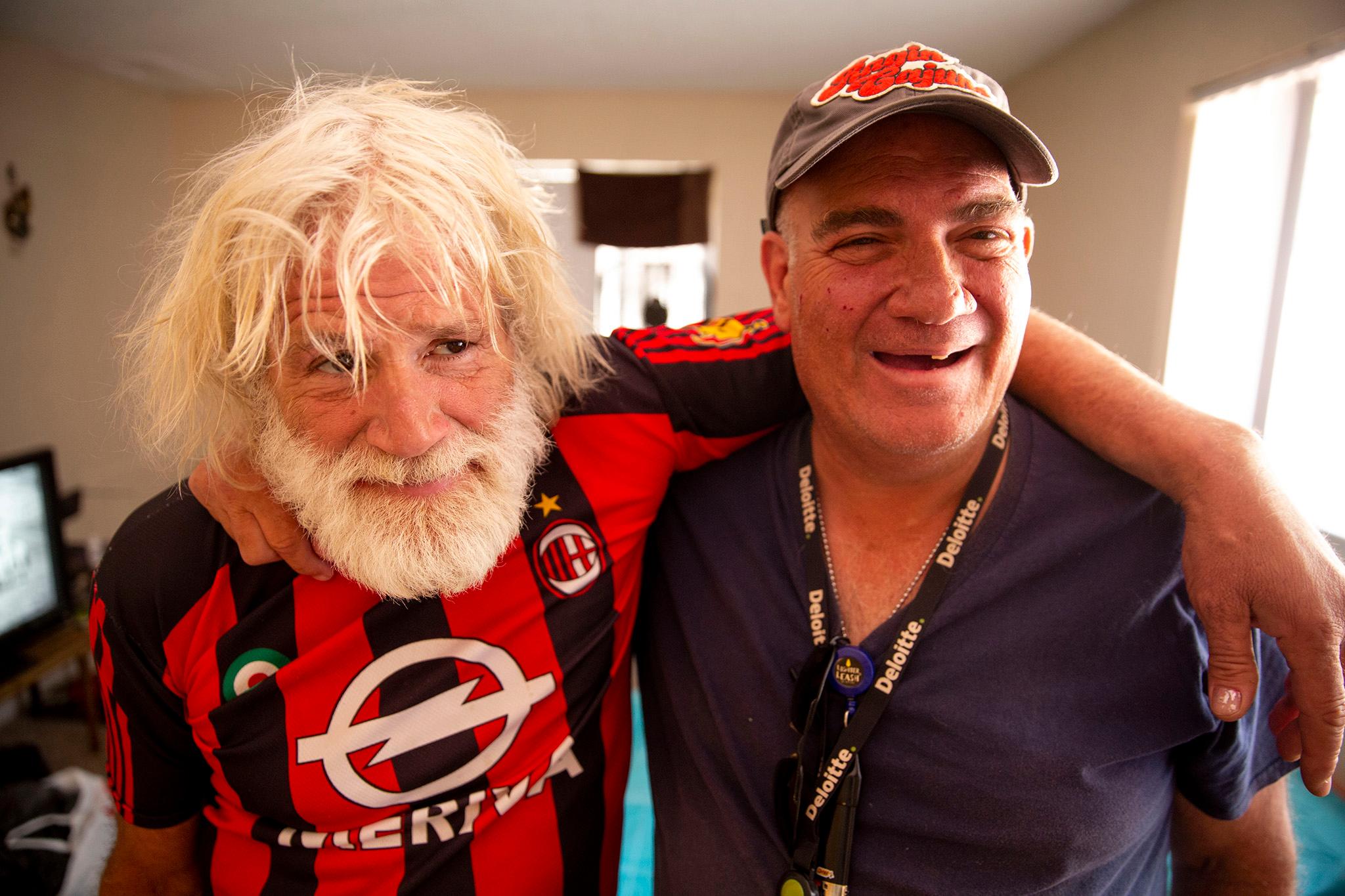It's a Thursday afternoon at Network Coffee House and, as usual, Max Hutchinson is yukking it up with volunteers making sandwiches for people who otherwise may have to skip lunch. For 40 years, Network has been a place for Denverites without homes to hang out and recharge. Hutchinson, a Louisiana native who usually wears a wide grin, has been a regular here for about a decade.
Last week, Hutchinson and his partner, Kevin Bastow, moved into an apartment of their own. It was a welcome move, enabled in part by the resources they got living at a safe outdoor space, which provides sanctioned camps and resources for people experiencing homelessness. But finding permanent housing after years on the street has come with unexpected baggage.
"Kevin asked me yesterday, he said, 'Are we still going to be able to be friends with our friends?' And it almost made me cry," Hutchinson said, nearly tearing up as he thought about it. "I said, 'Yeah, you can still be friends with your friends. Nothing's going to change. I won't let that happen.'"
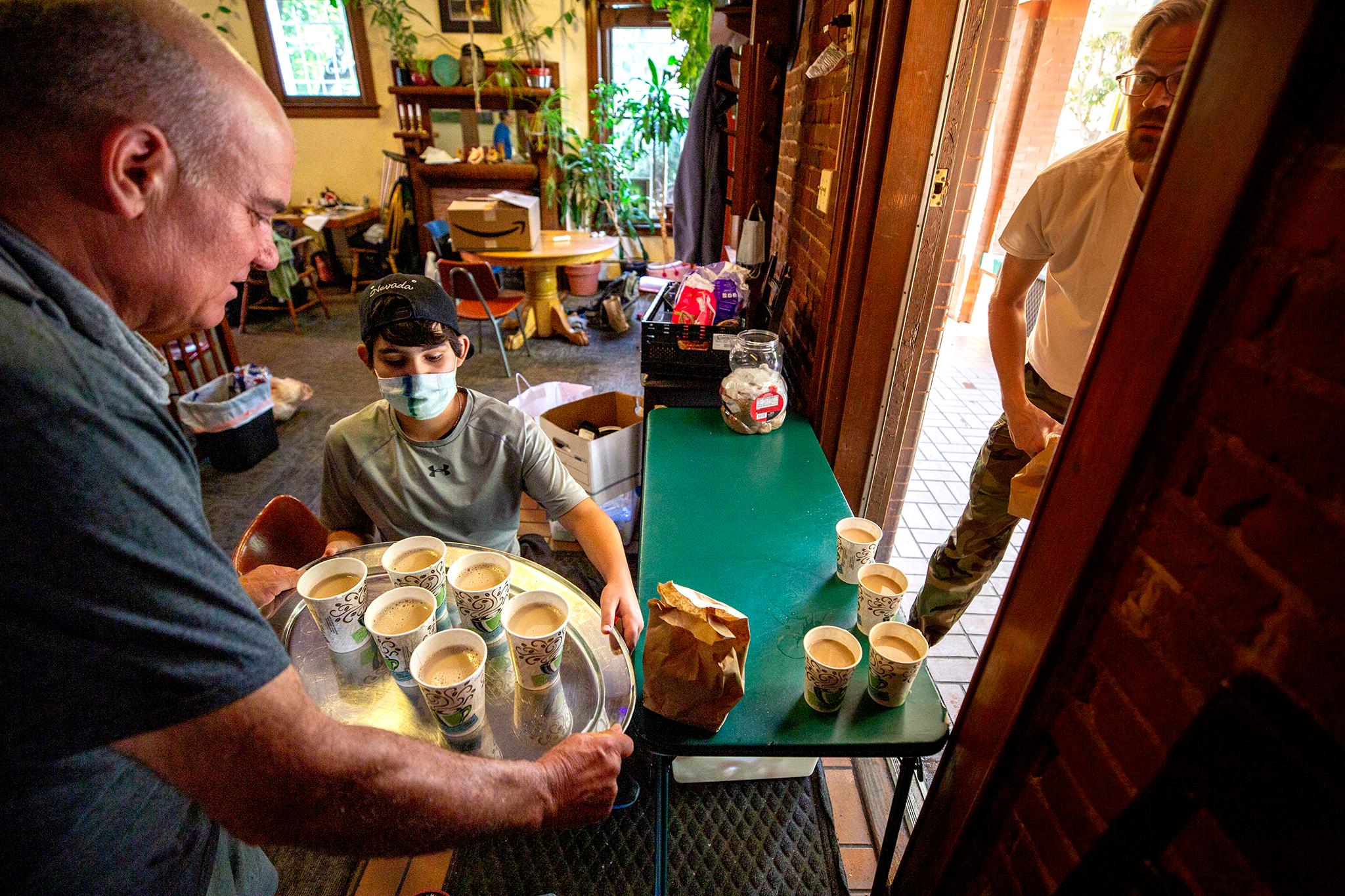
Hutchinson and Bastow have been together at least 16 years. They became homeless around 2010.
Their new apartment looks out at Wax Trax, the record store on a corner where they spent many nights sleeping in a tent. They'd also set up camp on the edges of St. John's Cathedral's lawn and across Washington Street by the Xcel Energy substation. It was close to Network, where they could see friends, sip coffee and shower. It was also an area where they mostly felt safe.
"There's some good people in this neighborhood. There was mornings we'd wake up with a $20 bill slipped up underneath our sleeping bag," Hutchinson said. "And there was also mornings we woke up at two in the morning to a police officer telling us we had to move."
Denver officials approved an urban camping ban ten years ago this month, so Hutchinson and Bastow have dealt with orders to "move along" for the most of their time living on the city's streets. Dealing with cops was never easy.
"They don't treat us like we're human," Hutchinson said, lighting a vanilla-flavored cigar. "They treat us like they're running a stray dog off."
And he experienced worse. Nine years ago, he set up a tent in Governor's Park to kick a drug addiction by himself. He was torn from a cold-sweat sleep by a police officer kicking him in the head and shoulders. The terror ended when an older woman, walking her dog nearby, chased the cop away and took Hutchinson to the hospital. She invited him to stay with her for months as he recovered from the trauma and got clean. After he recovered, he rejoined Bastow outside.
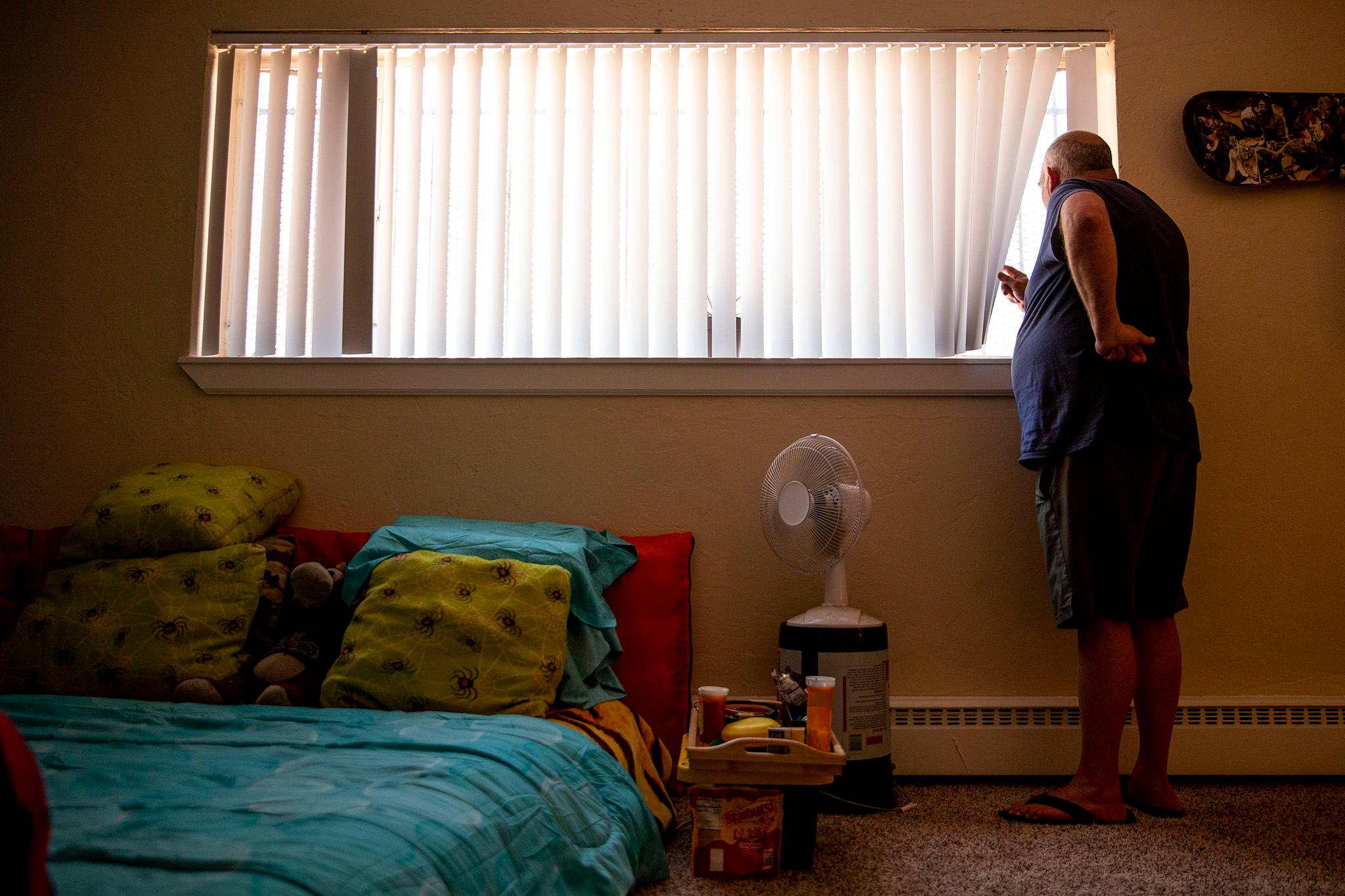
Shuffling around the neighborhood to avoid police was one reason they stayed outside so long.
They'd usually wake up each morning and pack up all their things, then cart their lives to Network or wherever they'd try to get a meal that day. At night, they'd find somewhere safe to hunker down.
This kind of transience can make it hard to keep in touch with social workers who need consistent contact to help people navigate long, winding pathways to housing support. All the while, the cost of living in Denver has become increasingly prohibitive. Holding down a job to save up for a first- and last-month's rent can be impossible for people without a permanent place to sleep, Hutchinson said. It didn't help that both he and Bastow, 59 and 61, respectively, have chronic health problems that make it hard to work.
Most people he knows would take an opportunity to move inside if they could, he told us, but many deal with similar logistical barriers. He also expects some would not be ready to shake their street mentalities and make the transition. It's something he thinks most housed people in the city cannot appreciate.
"I don't know if you can understand it until you've done it. Some people think we all want to do this, want to be outside," he said.
Shelters were never a good option for the couple. Short of subzero nights when they used public facilities to avoid freezing, Hutchinson said they often opted to deal with police outside. It generally felt safer than the warehouses, where there was a good chance they'd wake up to discover their belongings had been stolen.
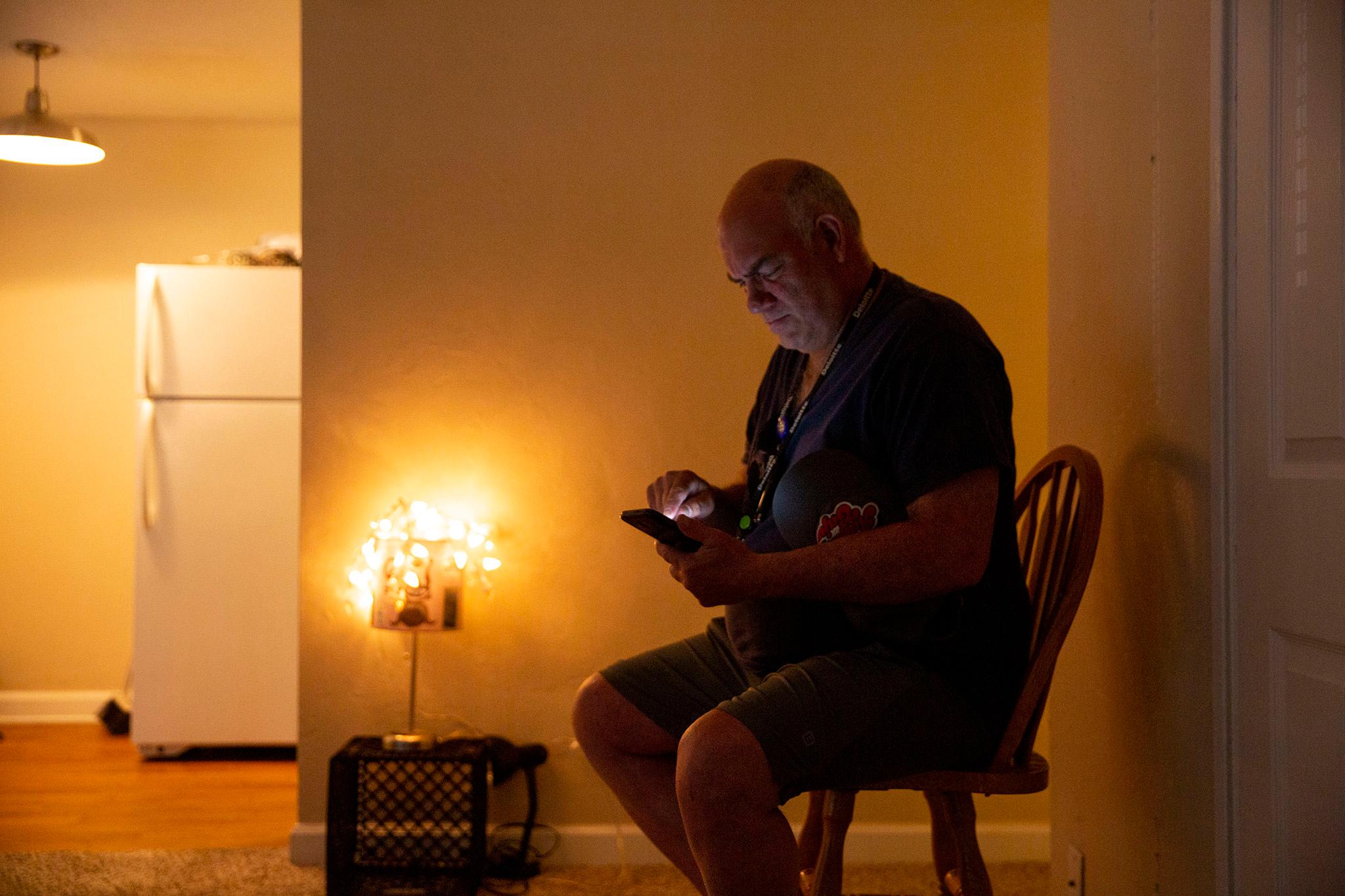
They'd developed an aversion to support programs, so Hutchinson said they weren't so sure about moving into a safe outdoor space when they had the opportunity.
But the volunteers at Network - who he fondly refers to as "the mommies" - worried about him and Bastow staying outside and implored them to try out a new, supervised camp opened by the Colorado Village Collaborative at Pearl Street and 16th Avenue in late 2020. The couple reluctantly agreed, and packed up their stuff to move into an ice-fishing tent behind a fence. That experience would change their lives.
In the camp, Hutchinson said he and Bastow were finally able to pursue housing with a case manager in earnest. SOS sites have only been allowed to remain in one place for six months at a time, so the couple bounced from Pearl Street to a camp at Regis University and then Park Hill. But despite the moves, they were able to keep in touch with social workers who helped them inch closer to housing vouchers. Then, a year into their wait, they got good news: They'd been approved for money to get into an apartment. They weren't the only ones.
"The first group of people going into the SOS camps, a lot of them have just gotten their places," Hutchinson said.
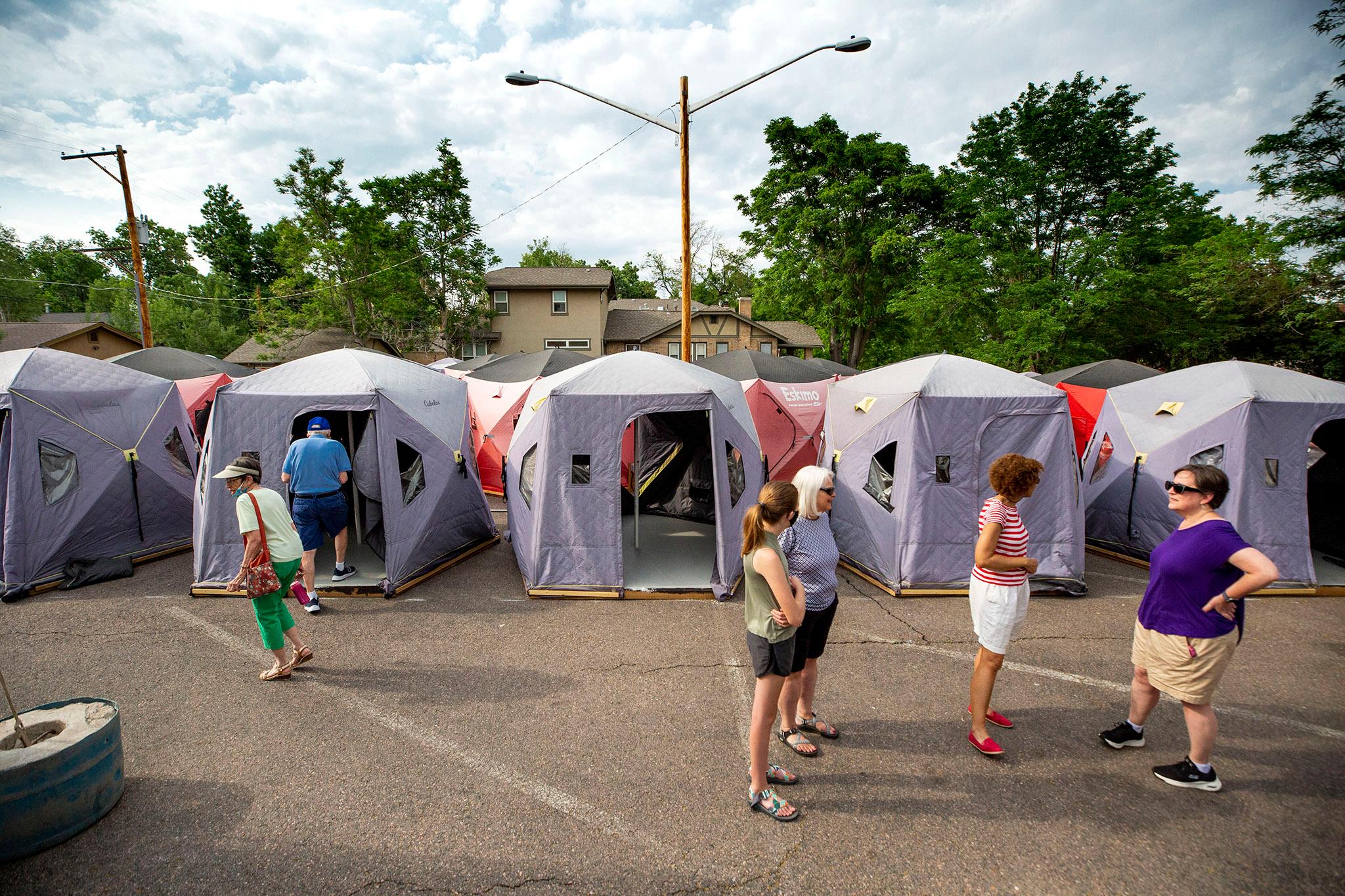
Cuica Montoya, the Colorado Village Collaborative's Safe Outdoor Space program director, said the organization has been "streamlining" work to move residents inside, which includes close partnership with Denver's housing department. The city is finishing its second "housing surge" to find people permanent places to stay. Montoya said at least 60 people currently living in SOS camps have gotten vouchers. Last fall, the Denver Department of Housing Stability said it moved 340 "households" off city streets and into housing during its first surge. In February and March of this year, they did the same for 146 more.
As the couple settles into their new place, they face challenges they never expected.
Hutchinson flashes a fob to get through the front door of his new place, then heads down a set of steps and inserts a key into the first front door that's belonged to him in years. Inside, he steps over springy carpet into an airy 500-square-foot studio that's beginning to look like a home. An air bed, neatly made and covered with colorful pillows and stuffed animals, lays on the floor across from a TV playing an old western. His case manager will come by in a few hours with a bed frame; a real mattress is on the way, too.
But he can't stay in the house for too long this morning. A friend woke up to police telling her to move along from the spot where she was sleeping across the street. She left a blanket and some other things on the corner while she figures out where to go next. Hutchinson said he'd watch her things while she's gone.
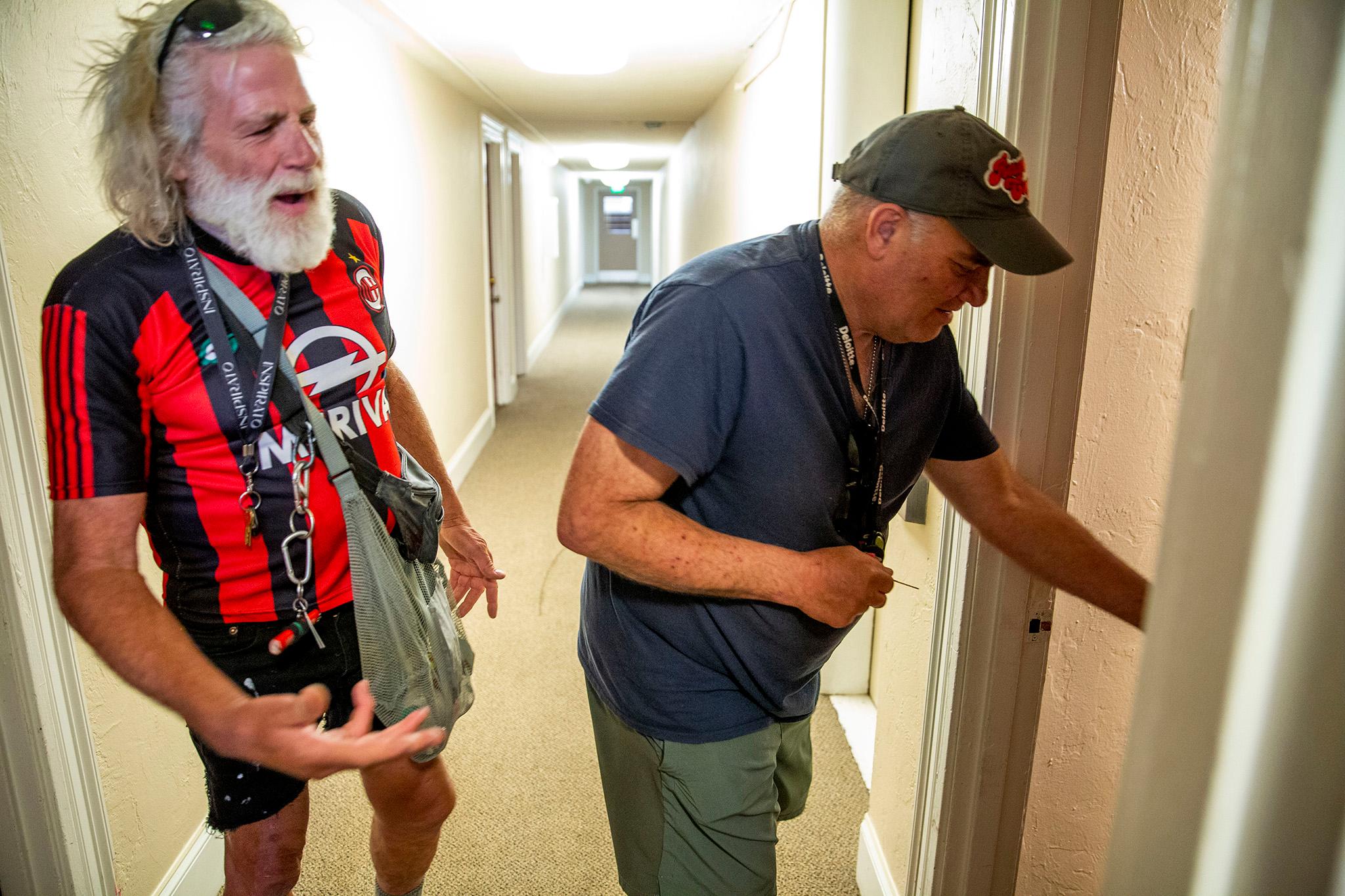
He worried sleeping within four walls would be difficult, maybe too quiet or too claustrophobic, but that turned out to be an easier transition than he expected. The things that are getting to him are more insidious.
"You know, the hardest thing to getting used to being inside is the sweet young girl across the street who just got run off, and not to be able to tell her 'just bring your s*** in,'" he says.
There's a kind of shift that happens when someone gets a place and moves off the street, he said.
"I've known a lot of people who've gone in. And I understood it. They completely vanish," he said.
Now that he's experiencing this shift from the other side, he's feeling the reasons why. He knows better than most that the woman across the street could use an invitation to come inside. At the same time, he's got a feeling in his gut that his newfound stability is fragile. He and Bastow will do what they must to avoid losing their new place, even if that means stopping themselves from offering the kind of help they might have needed a few years ago.
"Every now and then, I'll run into someone who's (moved inside). They usually don't talk long, just, 'How y'all doing?'" Hutchinson said. "They're always afraid you're going to ask that question: Can I come over to take a shower or something?"
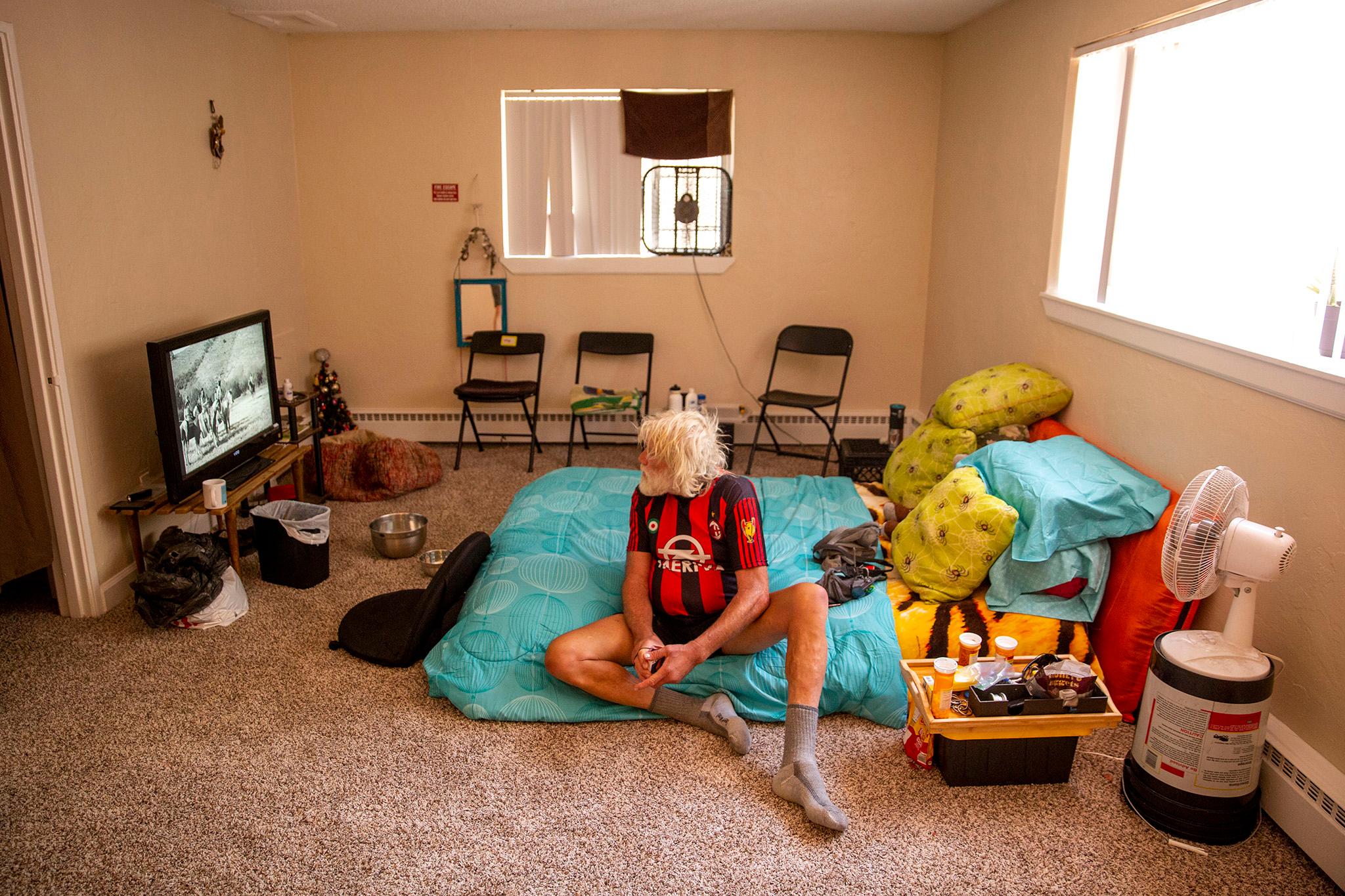
But Hutchinson and Bastow waited months to use their voucher for an apartment close to Network. It was crucial they didn't stray too far as their lives changed. They'll do what they can to help their friends as they try to make their own ways inside. In the meantime, staying connected is as much about offering help as it is about remembering who they are.
"I know things are going to be different, living arrangement wise. We don't have to worry about that anymore. But I'm still who I was, and so is Kevin," Hutchinson said, standing on the corner where he and Bastow once slept in a tent. "This is where I became homeless. This is where I stopped being homeless. A lot of these people out here, they're my family."

